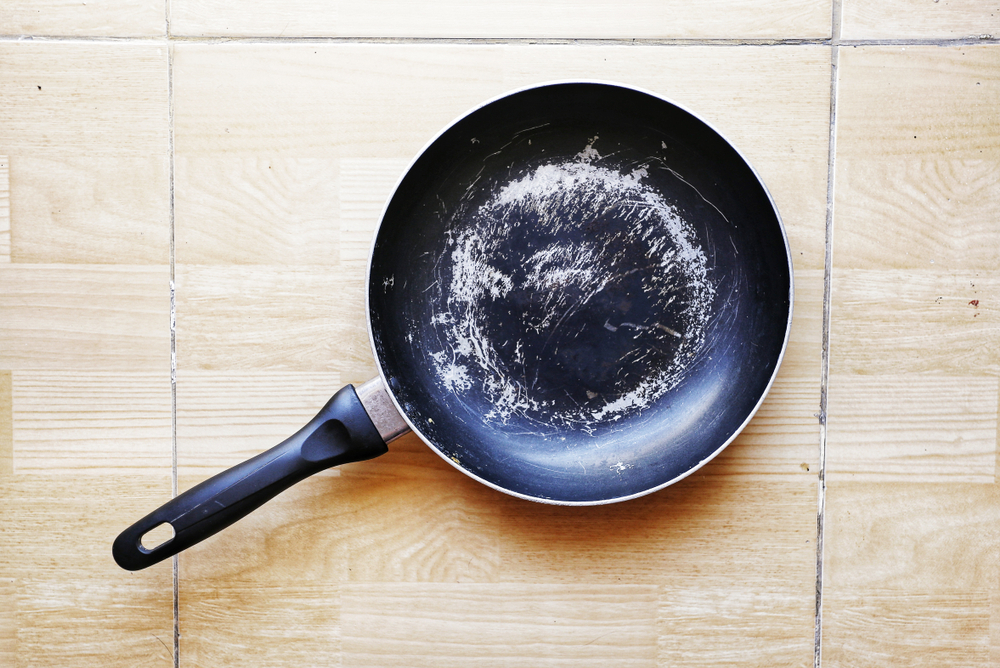Time to Ditch Teflon with These Safer Alternatives

Teflon is a synthetic material used in many common household items, from non-stick cookware to waterproof fabrics. While it’s highly useful and versatile, Teflon can be dangerous to humans and the environment due to its chemical composition.
This is exactly why many green-conscious consumers are ditching Teflon in favor of safer alternatives.
This article will discuss some ideas for those looking for an alternative to Teflon that won’t pose health risks or environmental hazards. We’ll look at natural materials like beeswax and plant-based oils as well as other synthetic materials that are better suited for use in home goods. By the end of this article, you should have a good understanding of your options when it comes to replacing teflon with something safer!
The Dangers of Teflon
The dangers of Teflon include chemicals that can cause harm to humans and the environment if not used correctly. When overheated, Teflon releases a range of toxic chemicals, including perfluorooctanoic acid (PFOA) and polytetrafluoroethylene (PTFE). These chemicals can cause a range of health issues, including infertility and cancer.
The manufacturing process for Teflon is also harmful to the environment. The non-stick coating is made using perfluorooctanoic acid (PFOA), a chemical that is toxic to human health and can remain in the environment for long periods of time.
Alternatives to Teflon
Teflon has been used since the 1950s, and while it is an incredibly useful material, its drawbacks have led people to look for better alternatives.
Cast Iron
Cast iron is an incredibly durable and versatile material, making it a great replacement for Teflon. Cast iron pans have been around since ancient times, and they’re still used in many kitchens today. They’re naturally non-stick, are very easy to clean, and can last for decades if taken care of properly.
Although cast iron pans are a great alternative to Teflon, there are some drawbacks. For starters, they’re extremely heavy, which can make them difficult to transport and maneuver in the kitchen. Additionally, if not seasoned correctly, they can be prone to rusting and corrosion. Cast iron pans also require more maintenance than other materials, as they need to be seasoned and oiled regularly.
Ceramic
Ceramic cookware is loved by millions for being lightweight, non-toxic, and incredibly durable. When properly “glazed,” it’s also naturally non-stick and because it doesn’t release any harmful chemicals or toxins into food, ceramic cookware is an excellent alternative to Teflon.
However, it does have some drawbacks. Ceramic isn’t as heat-resistant as other materials and if it’s exposed to rapid temperature changes, it can easily crack. Additionally, it can be quite expensive compared to other cookware options.
Stainless Steel
Stainless steel is another great alternative to Teflon because it’s non-toxic and incredibly durable. It’s also naturally non-stick when seasoned properly.
The main drawback of stainless steel is that it takes some time to season correctly, the process must be repeated regularly in order to maintain its non-stick properties. Additionally, stainless steel can be quite expensive compared to other cookware materials.
Beeswax
Beeswax is a natural material that’s known for its non-toxic and anti-bacterial properties. It’s also naturally water repellent, making it a great alternative to Teflon when used as a coating for cookware, fabrics, and more.
The main drawback of beeswax is that it’s not as durable as other materials and needs to be reapplied frequently. Additionally, it can be difficult to apply evenly and may require the help of a professional.
Plant-Based Oils
Plant-based oils, such as flaxseed and coconut oil, are a great alternative to Teflon. They’re non-toxic and provide a natural non-stick surface when applied correctly. Plus, they’re much cheaper than other materials, making them an affordable option for those looking for an eco-friendly alternative to Teflon.
The main drawback is that they don’t last as long as other materials and have to be frequently reapplied. Additionally, different oils have different smoke points and some may not be suitable for cooking at high heat.
Overall, there are a variety of alternatives that are safer and more sustainable than Teflon. By educating yourself on the pros and cons of each alternative, you can find the best choice to fit your needs while also reducing your environmental impact. Whether you choose ceramic, cast iron, or stainless steel coupled with either beeswax or plant-based oils, there are plenty of options available when it comes to replacing Teflon. By switching to a healthier and more sustainable cookware material, you can help protect your family and the environment.
This will also give you an opportunity to learn how to properly season and maintain your cookware to ensure it lasts for years to come. With the right care, you can enjoy healthier meals with peace of mind, knowing that your cookware is safer for both your family and the environment.
There’s no one-size-fits all solution when it comes to finding an alternative to Teflon. Different materials have different benefits and drawbacks, so it’s important to do your research and find the best option for you. With a little bit of knowledge and effort, you can make healthy and eco-friendly cooking choices that will last for years to come.